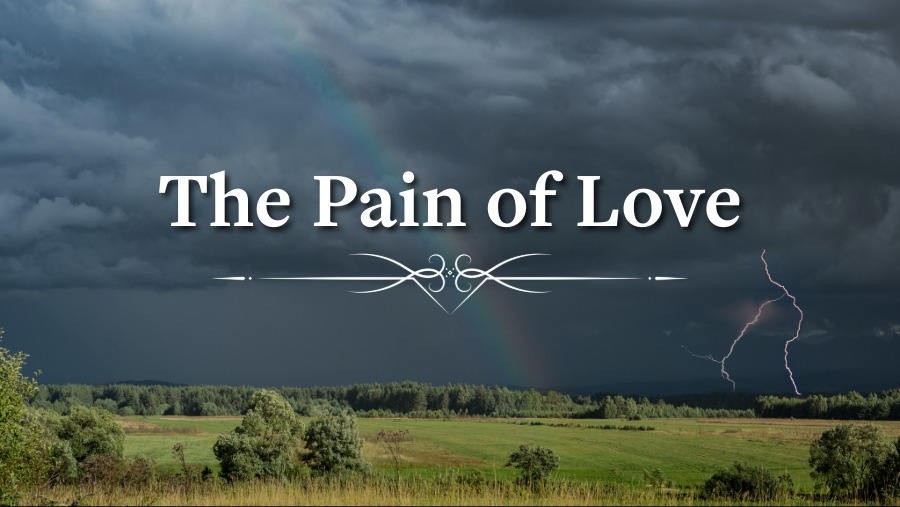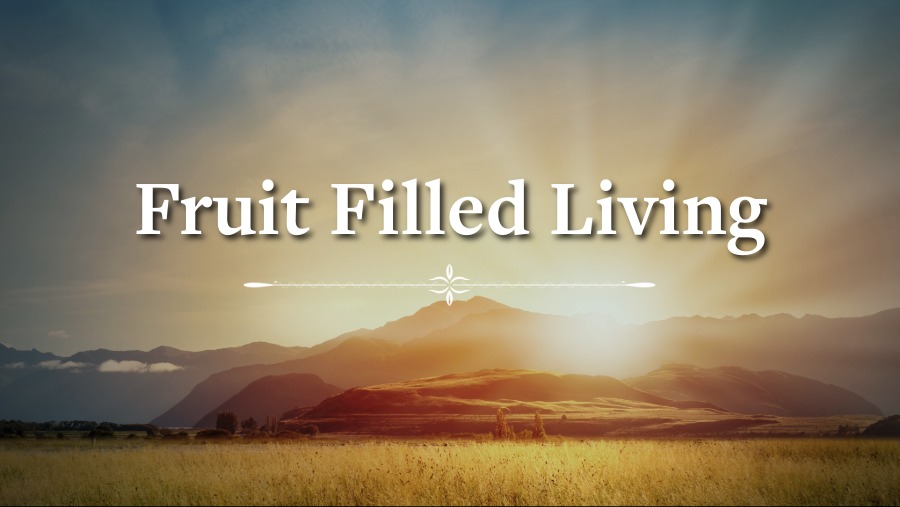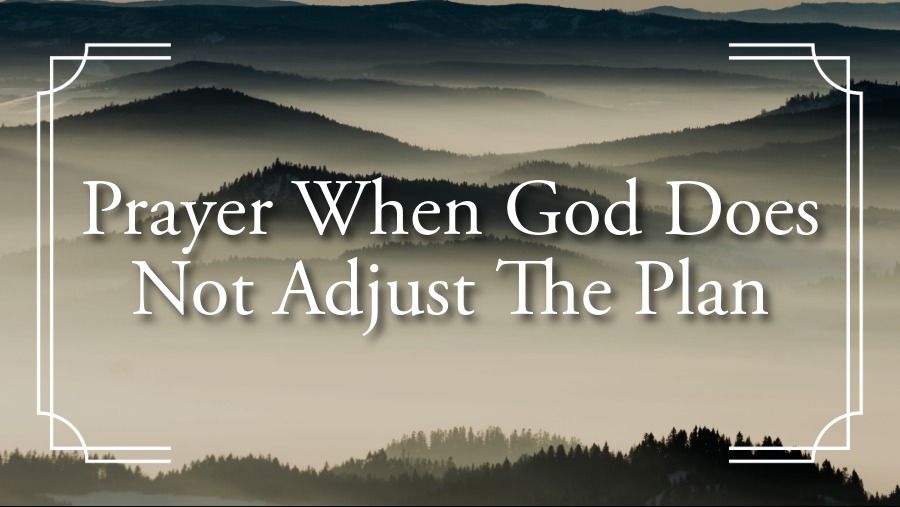
What Does God Stir In You?
The message explores how a right understanding of the Trinity—the Father, the Son (the Word), and the Holy Ghost—should actively shape a believer’s daily life. Rather than attempting to solve the mystery of “three in one,” the preacher focuses on who each Person of the Godhead is to us and what that should produce in us. The core burden is intensely practical: if we claim Christ died for us and that the Spirit indwells us and the Father keeps us, then our thoughts, choices, and priorities should bear visible evidence of that reality every day. The sermon continually presses a heart-level question: “What does knowing God stir in you?”
God the Son — Jesus Christ: Creator and Savior who demands a lived response
Beginning with John 1, the preacher identifies “the Word” as Jesus, both fully God and made flesh. Two facets are emphasized:
Creator. “All things were made by him” (John 1:3). The preacher uses simple observations from nature (grand landscapes, skies, and the intricacy of the human body) to illustrate that creation reveals design, not accident. If five carved letters in a tree imply an artist, how much more do “three billion letters” of human DNA declare a Designer? This argument is not scientific exposition but devotional logic: creation should lead us to worship and obedience because it is Christ’s handiwork.
Savior. Citing Romans 6:23 and 1 John 2:2, the sermon stresses substitution: Christ bore sin’s penalty so that we might receive his righteousness. Salvation, then, is not only a rescue from future judgment but a claim on present living.
Application. The preacher poses a piercing question: many can raise a hand to say, “I believe Jesus died for me,” but do we live each day as if someone died for us? Honest confession follows: even earnest Christians get weighed down by life’s burdens—work, family, health, finances—and drift from living in conscious gratitude and purpose. Knowing Christ’s identity and sacrifice should “affect every aspect of our lives,” moving us from passive belief to purposeful, Christlike action.
God the Holy Ghost — The Comforter, Witness, and Seal who empowers the Christian life
Turning to John 14:26 and 1 Corinthians 6:19, the preacher emphasizes the Spirit’s indwelling presence in every believer as “the Comforter,” given to teach, remind, guide, and strengthen.
Comforter. The Spirit meets us in joy and in loss, not as a distant observer but as God’s empowering presence. The sermon likens hard tasks accomplished alone versus with help: life’s emotional and spiritual loads are never meant to be carried solo. Romans 15:13 is highlighted—our hope abounds “through the power of the Holy Ghost.”
Witness and Renewer. The Spirit “bears witness” that we are God’s children (Romans 8:16) and continually “renews” us (Titus 3:5). Sanctification is presented as the Spirit’s ongoing work to reshape our identity and conduct. Yet believers can resist: we may say, “My life is yours, Lord,” while still steering our own way. The preacher calls this out as a common, subtle contradiction of the Christian life—professed surrender with practical self-direction.
Seal and Security. Believers are “sealed unto the day of redemption” (Ephesians 4:30). From John 10:29, no one can pluck us from the Father’s hand. This assurance is not license for apathy; rather, it’s power for courage, obedience, and endurance.
Application. The Spirit’s presence should translate into dependence (leaning on his strength), sensitivity (listening to his conviction), and follow-through (walking where he leads). The call is to move from occasional crisis-prayers to a sustained, Spirit-led pace of life.
God the Father — Protector and “Abba” who directs our paths and draws our hearts
The preacher then highlights the Father as Protector and Guide, weaving multiple Psalms and Proverbs 3:5–6 to show God’s desire to shield and direct his people. The problem is not God’s willingness but our wandering: we often step out from behind the shield seeking “warmer” places, then wonder why showers of blessing are missed. The sermon identifies a quiet insistence on our advice to God—wanting him to bless our plan rather than submitting to his.
Protector and Guide. God is “our refuge and strength,” a “shield,” the one who “enlarges our steps,” and the one who “shall direct thy paths.” The preacher urges practical alignment: instead of asking God to relocate his blessings to fit our preferences, we must move under his cover and keep step with his leading.
Abba—A child’s tender name for Father. The message lingers warmly here. “Abba” is presented as a term of endearment (like “Daddy”). The preacher fears that many believers know God is Father, yet rarely treat him as Abba—near, loving, and gladly embraced. Moving anecdotes evoke the reunion of a child and a returning father: tears, a sprint, arms wide open, a hug that doesn’t want to end. By contrast, Christians often act as though God is absent until we finally “notice” him in crisis, grasp him for a moment, then slip back to our “toys” and routines, ignoring his nearness.
Application. The preacher urges believers to move from occasional embraces to a hand-in-hand walk—throughout the day, not only in morning devotions or on Sundays. Even good spiritual habits can become a checklist that crowds out relationship; the aim is not merely “meeting with God” but abiding with Abba.
The Parable of the Sower — Daily heart diagnostics for lifelong fruitfulness
Drawing from Matthew 13 (taught recently to the teens), the sermon reframes spiritual responsiveness as soil quality. The same Sower and the same seed yield four outcomes, distinguishing hearts rather than messages:
- Wayside (Hardened heart): Wounds, cynicism, or resistance prevent the word from penetrating.
- Stony ground (Shallow heart): We receive with emotion and initial resolve, but without depth or root; the impression fades quickly.
- Thorny ground (Crowded heart): Genuine desire gets choked by pressures, busyness, and competing priorities; intentions never mature to obedience.
- Good ground (Ready and open heart): The word is welcomed, room is made, and costly follow-through turns conviction into lasting change.
Crucially, the preacher refuses a one-time reading of this parable. This is not merely about “how we first received the gospel,” but about daily reception: “Every time you come to church, you have a chance for seeds to fall on good ground—or stones—or thorns—or by the wayside.” Thus the call: daily examine the state of your heart. Yesterday’s tenderness does not guarantee today’s; spiritual health requires ongoing attention and intentional room-making for God.
A Call to Live Stirred—Purposeful, trusting, rested
The sermon circles back to the keynote question: What does knowing God stir in you? Knowing the Son died for us, the Spirit indwells and empowers us, and the Father protects and directs us should ignite purpose, courage, and steadiness. Trials are not denied—“If he brings you to it, he will bring you through it”—but reframed under God’s faithful care. The preacher closes with an invitation to rest in Jesus’ promise (Matthew 11:28): many of us are exhausted because we seek spiritual rest weekly or seasonally, not daily. As with physical sleep, spiritual rest must be regular or our capacity unravels. The way forward: come to Jesus today, receive the Spirit’s power today, walk with Abba today. Then repeat tomorrow.
Final Exhortation. Let Christ’s cross, the Spirit’s presence, and the Father’s love move from doctrines we affirm to realities we live. Choose the “good soil” posture each day. Make room for God first, not last. Trade advice-giving for trust, convenience for obedience, and checklists for communion. Live—and keep living—as if Someone died for you, Someone walks in you, and Someone holds you fast.

.png)



























